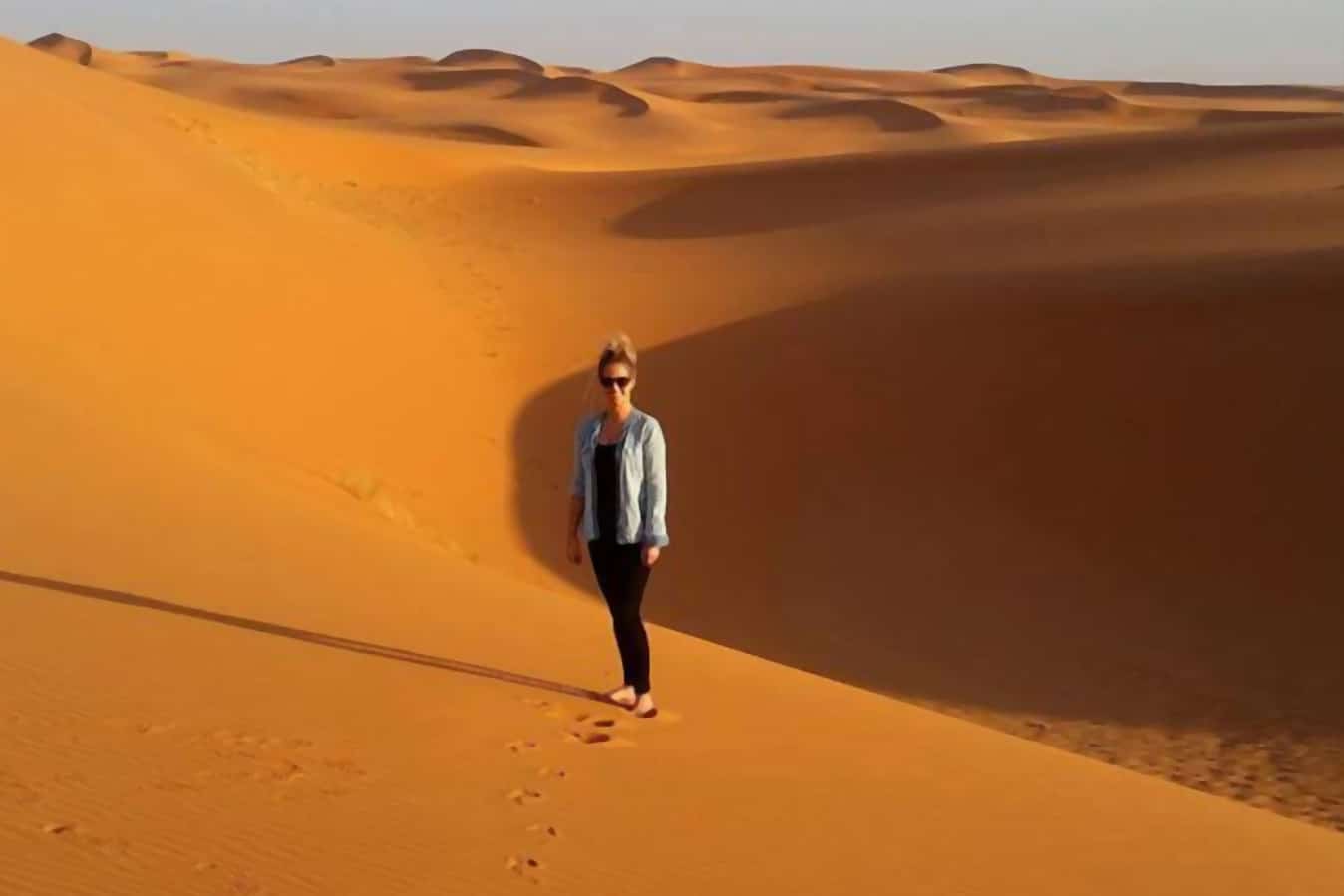“Everyone is different and everyone will have a different experience. You cannot comprehend it until you’re here,” says Queensland emergency nurse Bambi Reichman who has been working in Saudi Arabia for the past ten months.
Bambi says she came to Saudi Arabia at a time in her life when she felt the need for a challenge professionally and also on a personal level. “I did a bit of research and looked into rural and remote areas of Australia and then started to think about international options as I have never really had the chance to travel.
“I started to look at recruitment agencies and came across CCM Recruitment. They have been amazing and have been in touch with me the whole time.
“The local culture, the people, the environment, the way of life, it’s really unique and beautiful. Not many people can say they’ve been to this part of the world; you can’t just book a flight and travel here as it is currently not open for tourism.”
Bambi grew up in Derrinallum, in country Victoria and completed her Bachelor degree at Deakin University, Warrnambool. She worked at Barwon Health in Geelong, Victoria specialising in emergency for five years and also more recently at Noosa Private Hospital in Queensland in the ED.
Working in Saudi Arabia enables the opportunity to travel and go home with a little savings, she says.
“The benefits are amazing. It’s tax free, you receive a relocation allowance, free housing, 54 days of annual leave and everything’s so close you can travel on your days off. You can be on a six-hour flight to London.
“So far I have been to Dubai, Jordan and the Greek Islands. I have an upcoming trip booked to India and Sri Lanka with two friends I have met while being here.”
Initially it was a culture shock, says Bambi. “There was a sort of awareness before I came here of what to expect but it was not until I arrived that I grasped the entirety of it, especially the dress code.
“Saudi Arabia is the only country in the world where women cannot drive. There is the option of Uber, regular taxis and the hospital also runs a limousine service.
“There is the call to prayer five times a day, and during this time businesses close their doors for up to 30 minutes so you have to be sure to work your daily routine around this.
“There is gender segregation in public, in coffee shops and in restaurants. The single section is for men only and the family section includes single women and families.”
Bambi says there were also initial challenges at work – the environment, policies and procedures and equipment. Language and cultural barriers were the biggest challenge, despite the use of translators.
“Working within the emergency environment, effectiveness of communication is extremely important, especially as you are the first critical point of patient contact. My Arabic is slowly improving and I guess I have found ways of adapting my usual nursing practice to be able to engage with my patients.”
“The ED is a really busy environment and the acuity of illness here is extremely high. The hospital I’m currently employed with are a national referral centre for organ transplantation, cardiovascular diseases, neuroscience and genetic disorders. People travel really long distances to come here – they may have travelled in their private family car for up to eight hours so by the time they get to us they can be quite unwell.”
Another challenge was working with people from so many different countries and their various attitudes and nursing practice.
“You meet people from all over the world, there is something like 64 nationalities working here in our hospital. I’ve made friends that will last a lifetime and have gained a newfound passion for cultural experience and travel which I never really had before.”
Bambi says expats need to develop a support network at work and socially. “Find strategies to help with the work to life balance. It’s important to be social as it helps to keep your mind busy.”
You need to give yourself time to settle in, says Bambi. “You need to be openminded and have the potential to be able to step out of your comfort zone.
“Don’t come with expectations. I think that way it’s easier to adapt in and outside of work.
“Before I came here some of my family and friends were a little concerned in regards to my safety and I guess I was a little nervous also but the people here are lovely and I feel very safe. I think it’s safer than any other place in the world right now.
“Due to their values and beliefs they are a very respectful culture. If you are mindful of their culture and way of life you will find respect is a two way street.”
Bambi says she has grown both professionally and personally from the experience. “The opportunity for professional growth is huge. I’ve completed my adult and paediatric advanced life support and also my neonatal resuscitation just to name a few – there are so many courses available all of which are provided by the hospital with no out of pocket expenses.
“It may sound cliche but this really has been the experience of a lifetime and I don’t regret a thing.”








